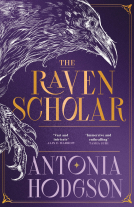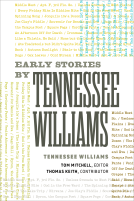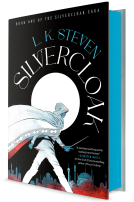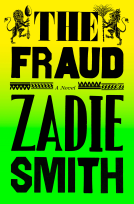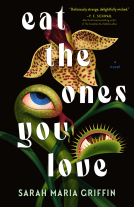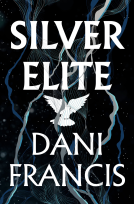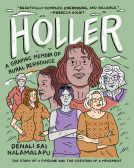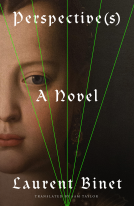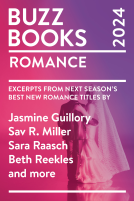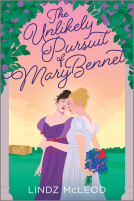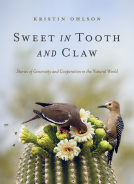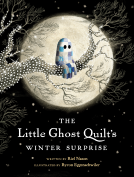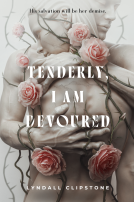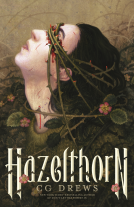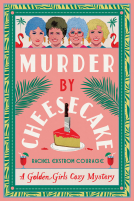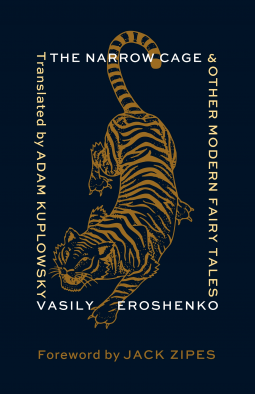
The Narrow Cage and Other Modern Fairy Tales
by Vasily Eroshenko
This title was previously available on NetGalley and is now archived.
Send NetGalley books directly to your Kindle or Kindle app
1
To read on a Kindle or Kindle app, please add kindle@netgalley.com as an approved email address to receive files in your Amazon account. Click here for step-by-step instructions.
2
Also find your Kindle email address within your Amazon account, and enter it here.
Pub Date Mar 07 2023 | Archive Date Jun 14 2023
Talking about this book? Use #ColumbiaUP #NetGalley. More hashtag tips!
Description
Vasily Eroshenko was one of the most remarkable transnational literary figures of the early twentieth century: a blind multilingual Esperantist from Ukraine who joined left-wing circles in Japan and befriended the famous modernist writer Lu Xun in China. Born in a small Ukrainian village in imperial Russia, he was blinded at a young age by complications from measles. Seeking to escape the limitations imposed on the blind, Eroshenko became a globe-trotting storyteller. He was well known in Japan and China as a social activist and a popular writer of political fairy tales that drew comparisons to Hans Christian Andersen and Oscar Wilde.
The Narrow Cage and Other Modern Fairy Tales presents a selection of Eroshenko’s stories, translated from Japanese and Esperanto, to English readers for the first time. These fables tell the stories of a religiously disillusioned fish, a jealous paper lantern, a scholarly young mouse, a captive tiger who seeks to liberate his fellow animals, and many more. They are at once inventive and politically charged experiments with the fairy tale genre and charming, lyrical stories that will captivate readers as much today as they did during Eroshenko’s lifetime. In addition to eighteen fairy tales, the book includes semiautobiographical writings and prose poems that vividly evoke Eroshenko’s life and world.
About the author: Vasily Eroshenko (1890–1952) was a blind writer, translator, activist, and teacher who led an extraordinarily global life. After studying in Moscow and London, Eroshenko traveled to Japan, where he found fame for his fairy tales and public speaking. Deported from Japan in 1921 for his connections to political activists, Eroshenko moved to China, where well-known writers like Lu Xun were translating his stories to wide acclaim. The final decades of his life were spent in the Soviet Union under Stalin, and he died in obscurity.
Advance Praise
"The Narrow Cage and Other Modern Fairy Tales is a marvel in every sense of the word. Adam Kuplowsky’s translation is a masterful homage to a storyteller whose own journey holds all of the hope and despair the best fairy tales contain. Read this book!"
—Amanda Leduc, author of Disfigured: On Fairy Tales, Disability, and Making Space
"Kuplowsky’s remarkable translation unearths the long-buried treasure of the fairy tales by Vasily Eroshenko whose life and oeuvre not only bridge many cultures and peoples across Eurasia, but also awake our humanity to the light of hope through his multilingual account as a blind poet and storyteller. This indispensable collection deserves attention from any serious reader."
—Juwen Zhang, editor of The Dragon Daughter and Other Lin Lan Fairy Tales
"[Eroshenko] has a childish yet pure and beautiful heart, and the boundaries of this world cannot limit his imagination…. Upon reading him, I felt grateful that mankind has been gifted such a work by a person who has yet to lose his childlike heart."
—Lu Xun
"This blind Ukrainian Esperantist captivated readers as he lived and travelled solo across Asia. He wrote non-imperial translingual tales as his medium of transnational communication in an imperial world. Eroshenko’s modern fairy tales finally reach English-language readers in Kuplowsky’s skilful translations and insightful introduction."
—Sho Konishi, University of Oxford
Available Editions
| EDITION | Other Format |
| ISBN | 9780231207690 |
| PRICE | $25.00 (USD) |
Available on NetGalley
Featured Reviews
 Geoffrey S, Librarian
Geoffrey S, Librarian
The collection of stories here are a delightfully curious bunch. They are clearly modeled in classical fairy tale style, especially with their primarily non-human casts and frequent fantastical elements, but their intended lessons are clearly not the same as the you’d find in say, a Hans Christian Anderson collection. Some of them clearly jumped out at me, like a tale about a young fish and its thinly failed-stab at religion, but admittedly there are quite a few of them whose leftist themes I still haven’t figured out yet. However, that’s not meant as a criticism. These tales were clearly written for a particular context in history, and so far I’ve actually quite enjoyed the time spent reflecting and trying to discern their greater meaning and to see just how potentially applicable I find them today.
To be perfectly honest though, I think I would have just enjoyed this for the forward alone and for the opportunity to learn about Vasily Eronshenko, creator of these fairy tales. A blind man who spoke many languages but was strongly involved in the Esperanto movement, lived all around Europe, China, and particularly in Japan, and whose extensive resume included massage therapist, lecturer, musician, left-wing activist, and lecturer. To put it succinctly, the life he lived was a fascinating one, and I enjoyed being able to follow it in greater detail in the short biography that starts off his collection. And between that and the stories themselves, “The Narrow Cage and Other Modern Fairy Tales” has been making for a delightfully uniquely reading experience.
Thank you to Columbia University Press and NetGalley for this ARC in exchange for an honest review!
The Narrow Cage and Other Modern Fairy Tales by Vasily Eroshenko is an amazing collection of political fairy tales that have been translated from Esperanto and Japanese. According to the description, the author of these fairy tales was a "blind multilingual Esperantist from Ukraine who joined left-wing circles in Japan and befriended the famous modernist writer Lu Xun in China". He was well-known for his politics, which can be seen in the fairy tales. They reminded me of Aesop's Fables or the fairy tales of Oscar Wilde.
Overall, The Narrow Cage and Other Modern Fairy Tales is a wonderful collection of fairy tales that would be perfect for classroom use. It would be great to see if students can find the political beliefs hidden in the fairy tales. Here are some of my favorites. The fairy tale "The Sad Little Fish" has hidden messages about how humans treat the animal kingdom. "A Spring Night's Dream" is about an elf and a nymph who want a goldfish's scales and dragonfly's wings. Lastly, in "For the Sake of Mankind," a human boy puts on a dogskin and becomes a dog. If I had to complain about 1 thing, I wish I knew why the translator, Adam Kuplowsky, said some of the poet's tales were not fit to read and didn't include them in the collection. If you're intrigued by the excerpt above, or if you're a fan of fairy tales, you can check out this book when it comes out in March!
 Reviewer 345792
Reviewer 345792
4.5 stars
Reading the foreword and the long introduction, Vasily Eroshenko had a life worthy of a novel. An Ukrainian by birth, he lost his sight to a childhood illness, but never allowed that to define, or stop, him, and after his education was completed at the best school for the blind available to his circumstances, he got into writing and politics. He soon became known for his poetry as much as for his political activism, that got him eventually exiled for his anarchist views and agitating against the statu quo to compel people to rise up for change, just a couple of years before the Russian Revolution.
In Japan, he didn't abandon his convictions. To the contrary, he became even more acute in his convictions, and wrote fairy tales protagonised by animals, plants, and small creatures, that became a venue for his ideas and calls for radical reformation. In this anthology, you'll find all the tales he wrote in his exile in Japan before he again got exiled for political agitation, a total of thirteen tales, and also the four fairy tales he wrote in his exile in China. Written and published from 1915 to 1923, they are known as Japanese Tales and Chinese Tales here, not because they are either Japanese or Chinese in origin but because Eroshenko was living in each country when he wrote them. There seems to have been more, because Eroshenko wrote until his dying day, but the infamous NKVD confiscated his manuscripts under Stalin, so a lot was lost.
Written in a style that makes you think they'd be written by Aesop if Aesop were an angrier acivist instead of the quietly mordant fabulist he was, Eroshenko's fairy tales are pessimistic, bleak, and bittersweet. And so beautifully written they read like poetry. Like Aesop, Eroshenko's tales are deceptively innocent; when you start reading, you're lulled into a false sense of reading a nice little fable for children, and then, <i>whack!</i> The moral of the tale hits you right over the head, and you realise this is no children's sweet story. It carries a message, a metaphor, a reality. And it's not a pretty one. And Eroshenko isn't always obvious, you won't always finish a tale and think, "Ah, so he was talking about..." No, often, you'll have to play Spot the Point with his tales, trying to see what the political lesson, the philosophical aspect, the subversive idea, are. And no, you won't always agree with Eroshenko either, he can be super radical, but do take into account where he was from and what times he lived through, and you'll see his provocative commentaries make sense.
Also worth keeping in mind is that Eroshenko's disability, his blindness, shows in his fairy tales, and unlike non-disabled authors, he doesn't magically "solve" or cure disability, nor accommodates it to fit into the able world. His very first fairy tale here, "The Little Lantern," contains this theme of disability. His biography says his writings have made him a treasured member of the blind community as regards communicating their struggles and needs to the world, like Helen Keller, and I can see why. In traditional tales, disability is something to be "fixed," not so for Eroshenko.
They might not be the cheeriest of fairy tales, they might remind you a bit of Hans Christian Andersen, who also was known for giving his tales a most uncheery and tragic atmosphere, but they are so good and make you think! They should be read one at a time, if you want to grasp their message, and they also could be used to start debate and group conversation in the schoolroom, as the style of delivery is ideal for that.
I still want a novel about Eroshenko's epic life, though. Authors, if you're looking for someone that has everything: smarts, iron will, adventurous life, on the Soviets' hitlist, silver tongue (a <i>multilingual</i> silver tongue at that), cynical optimism (or was it optimistic cynicism?), revolutionary tendencies, anarchism, celebrity status, blind but thriving, globetrotting by force, native from Ukraine, etc., etc., Vasily Yakovlevich Eroshenko is your man.
 Reviewer 1016371
Reviewer 1016371
Thank you to Columbia University Press and NetGalley for providing this Advanced Reader Copy.
Vasily Eroshenko lived a fascinating life, and I am glad that more people will be able to read his tales thanks to Adam Kuplowsky's translation. It was lovely to have a brief biography of Eroshenko at the beginning of the volume to help contextualize the fables to come.
And when these fairy tales are billed as modern? They aren't kidding. The politics and ideals expressed a century ago echo sentiments that are again building today. The worlds Eroshenko builds are fantastical and magical, which provides a stark contrast to the scathing political statements Eroshenko espouses.
Eroshenko has some fascinating metaphors and motifs, not just for politics, but for beauty, disability, and human nature. He also has a fascinating feminine portrayl of an elegant and cruel Death that I loved.
There is much to be learned from this selection of 20th century tales that are just as relevant today as the day they were written.
Before coming across this book, I had never heard of Vasily Eroshenko, so it was interesting to read a little about his life in the introduction before commencing the stories. It helped to place them in context of his experiences. The Narrow Cage and Other Modern Fairy Tales was a delightful collection of tales, each beautifully crafted and engaging with an thoughtful message and/or commentary on society. I enjoyed the tales penned in Japan more than those written in China, but that just came down to my personal preference for the style of those tales, and other readers may feel differently. Overall, though, this was a wonderful collection, nicely translated and well presented, and I recommend it to anyone interested in modern fairy tales and fantastical short stories. It gets 4.5 stars from me.
 Reviewer 773240
Reviewer 773240
I was delighted to read Vasily Eroshenko's fairy tales, well translated by Adam Kuplowsky, having read a lot previously about anarchist movements globally during his lifetime -- figures I know well like Kropotkin and Goldman are mentioned briefly, and with the excellent introduction about Eroshenko's life I was able to place him and his work in context (and context is, certainly, very important to these stories).
As for the stories themselves, they are truly fairy tales -- many have talking animals. They are also certainly of their time: the themes are those of debates and discussions on what might be called the "left" during Eroshenko's lifetime: critiques of organized religion, humans' exploitation of non-human animals, and anarchist critiques of communism and capitalism alike. I really appreciate Kuplowsky's work bringing these tales to an English-speaking audience, and recommend this collection to anyone interested in fairy tales as well as anyone interested in socialist and anarchist history.
Thank you so much to Columbia University Press and NetGalley for providing me with an e-ARC; it is greatly appreciated.
I would read a book on Eroshenko's life in a second. Just wow. I could not imagine living such a fascinating life. I like that there is an extended intro to really give us at least the basics about Eroshenko. This really helps at the end of the book to give more context about what Eroshenko is writing about.
The tales themselves are some of the most depressing stories I have ever read. I am a fan of horror and dark writing, but these are so real they crawl under your skin and sit with you. The tone can also be quite jarring. These are written as if you are reciting a story to a child, yet the content is quite adult. There's such a sense of simplicity with his writing, yet what he's saying leaves you breathless.
Due to this I took quite awhile to finish this book. I would read only one or two stories a day, and maybe not touch the book itself for several days at a time either. I feel like this book really lends itself to be read slowly and savored.
Really lovely and heartbreaking collection of fairy tales. I was not previously familiar with Vasily Eroshenko or Adam Kuplowsky, but I will be looking for more of their works.
 Reviewer 965174
Reviewer 965174
The Narrow Cage and Other Modern Fairy
Tales is a collection of short stories written by Ukrainian author Vasily Eroshenko and translated by Adam Kuplowsky.
While at the beginning the stories may be considered fit for children, due to the fairy tale style, they are not, as the themes are mainly sociopolitical.
Overall, I found it entertaining to read about political beliefs in this format.
My personal favorite stories are The Scholar’s Head and Little Pine.
4/5 stars
I had never heard of Vasily Eroshenko until I read the summary and I ended up finding his life so interesting that I just had to read this. In The Narrow Cage and Other Modern Fairy Tales we are presented with a selection of tales from the author translated into English. There's a diverse mix of tales and autobiographical stories, all of them clearly showing Eroshenko's political leanings and ideals.
I enjoyed most of what I read. I found the prose very lyrical and easy to read. The themes contained in his stories are still relevant in today's world and age. I will say this: I found him a great writer but I would probably not have wanted to have a chat with him.
I would also like to comment on the translation. While I have never read the tales in their original languages so I cannot say how good the translation is I got the sense that there was a lot of hard work behind this. I think Kuplowsky really managed to get the lyricism and tone of the writing.
 Margaret M, Reviewer
Margaret M, Reviewer
Thank you to NetGalley and Columbia Publishing for this ARC.
I wasn't sure what to expect when I started this collection of stories by Vasily Eroshenko but the lengthy introduction and foreward were so interesting and I would read an entire story just about Eroshenko's life and philosophies. It provided a lot of context that I found helpful in understanding the stories themselves.
The stories were similar to traditional fables with lessons woven into short vignettes set in gardens and among animals. I really enjoyed thinking through a set of fairy tales that were new to me with new context and a more modern voice. They were truly beautifully written and very lyrically translated.
Vasily Eroshenko's life is just as fascinating as his writing. Born in a small Ukrainian village in imperial Russia, he was blinded at a young age by complications from measles. He became a social activist, storyteller and world-traveller in Japan and China, where he discovered and mastered a universal secondary language called Esperanto, a simple, repetitive but direct language which modern fairytales are primarily associated with.
This collection of Eroshenko's stories are thought-provoking and imaginative, albeit very dry at times. Though written primarily during his years in Japan and China, it feels very Eastern European - bleak and depressing, frequent moments of thinly-veiled anger, life sucks then you die. They're fairytales that blend realism and fantasy and tackle themes of political unrest/anarchy, religion/agnosticism, love/loss. Yes, there's cute, talking animals, but this isn't the kind of fairytale you should read to your kids unless you want to spend hours answering questions about what socialism and communism are.
Thank you to NetGalley and Columbia University Press for the eARC in exchange for an honest review!
Pub date: March 7, 2023
This wonderful collection of tales by the worldly Vasily Eroshenko starts off with a forward by Jack Zipes that is frustratingly bad, boring, and useless. I was shocked to see that his work is rather well regarded - seems he mailed this one in, because I was embarrassed for him reading it. It felt like a hastily put together book summery by a high-schooler failing English. That being said, you'll notice that I gave this book 5 stars, and a big reason for it was the wonderful introduction by Adam Kuplowsky, without which I don't think I would have even continued on to the stories themselves. His short but impactful summary of the life of Vasily Eroshenko was informative, well written, and left me eager for a full-length biography of the enigmatic expat.
The stories are all wonderful - I didn't dislike a single one. Not since reading Kafka in my youth have I come across a writer who makes so much with so little, each word seemingly in the right place, nothing extraneous, nothing left out. These are stories that I'll read again regularly, and recommend with pleasure.
Thanks to NetGalley and the publisher for the digital review copy used for this review.
The Narrow Cage is a well-crafted translation and an arrangement of multiple titles to (re)introduce a fascinating literary voice.
Thank you to Columbia University Press and NetGalley for this ARC
Reading the foreword made me want to read a whole book just on Eroshenko's life. It's a rich story in and of itself and provided plenty of context for the actual fairy tales.
Adam Kuplowsky's translation preserved the lyricism of Eroshenko's work very well, which I greatly appreciate. The stories flowed and from the start I was transported back to college and my mind immediately jumped to analyzing the content. Fairy tales are not really a genre I'm reading for fun in my adult days and so my mind attempted an academic approach. This however was quickly thwarted by me going 'hey, this is a little on the nose' about the leftist, anarchist themes and I realized I was reading fairy tales and that's... kinda the point. So I relaxed and very much enjoyed these stories. Some made me gut wrenchingly sad, some made me laugh (the mosquito Jesus being the winner), some were... prett disturbing and some I'm still thinking about and what messages they're sending.
All in all, a great read that made me excited to know about this little corner of history and this fascinating man.
Thank you to Columbia University Press and NetGalley for this ARC
I loved this book, although it took me some time to really get into it.
I’d never heard of this author before and I was really curious about his writing. I’m very sad I didn’t know about him until now but I will keep recommending him because I feel like he was a very interesting person and I think he deserves more recognition. The way the fairy tales were written, So lyrical and so effortless to follow but so hard to swallow( understand and think about them).
Although I have found the tales a bit depressing at times, I think they are a pleasant read that gives you something to think about. It’s wonderful to put the tales in perspective and incorporate them into today’s society and think about it.
What I also liked was his introductions and “Some pages from my school days” in which they discuss mainly race and it’s so interesting, considering the historical period this was written in.
I hope I will read more from Vasily Eroshenko and I will keep recommending this book :)
https://app.thestorygraph.com/reviews/84806c3c-89a1-48d9-877b-e05340a7fc29
https://www.goodreads.com/review/show/4923136997
I went into The Narrow Cage and Other Modern Fairy Tales knowing nothing about the author. I’m really glad this edition of fairytales included (a quite long) forward and introduction about Vasily Eroshenko. Ukrainian born, Eroshenko lost his sight during childhood. He attended a school for the blind and became known for his poetry and political activism. Later exiled for his anarchism - really cool guy!
Asides from being an insanely fascinating person, Eroshenko’s writing is like poetry. I adore fairytales and believe that fairytales are for all ages. His fairytales transcend age and time, offering moralistic takes, having political undertones and philosophical musings.
They are dark and gruesome tales, written during his time in Japan and China. You can see the influence of Japan and China in his writing which really added a special touch to the tales.
How do you describe with words a book that made you feel like a child again? But at the same time, it made you feel more empathetic as an adult?
Reading Vasily Eroshenko's work, was like reading again Aesop's Fables. As an avid fan of Japanese folklore, this book was a pleasant journey. I liked the fact that this book contained both Japanese and Chinese Tales, but also some personal experiences of the writer.
I honestly can't chose which one was my favorite, it is impossible. Of the Japanese Tales I really liked "An Eagle's Heart", but also "Little Pine" and "Two Little Deaths". All three stories were sad, but all three of them taught me something. "An Eagle's Heart" 's gist was that pride and hope are of utmost importance, and once they're crushed, a person can be changed inside and out. "Little Pine" made me so emotional and it emphasized how much fragile life is. Finally, "Two Little Deaths" underlined the power of humility, and how Death is equal to all, regardless of social status or economic standing. On the other hand, what pleasantly surprised me was the totality of Chinese Tales. The one that will stay with me though is definitely"Father Time", and I think that this story would be beautiful in an audiobook form.
I also liked the writer's stories from his own life, as a student in school for blind cildren, how they saw the world with the rest of their senses and the way they were perceived as from their entourage. How growing up his work and his circle impacted his life.
Thank you NetGalley for this ARC in exchange for an honest review! This book is out on March 7 2023!
I enjoyed getting to read Eroshenko's work. I really appreciated the foreword, because it provided a lot of background and context for the fairy tales later on. I had never heard of Eroshenko before, so I was fascinated with all the details about his life. The fairy tales were entertaining and each had its on commentary on society that I found very insightful.
The Narrow Cage and Other Modern Fairy Tales is a selection of short stories written by Ukraine-born Vasily Eroshenko,( “A BLIND poet. An Esperantist. A humanist. An egoist. A partisan. An anarchist. A “red” Russian. A “white” Russian. A Ukrainian. A child-like dreamer. A harborer of dangerous thoughts . . .”) translated from Japanese and Esperanto by Adam Kuplowsky.
A bit of perspective on the author- his life and times- are of vital importance to fully appreciate these tales. I would urge readers to not skip the Foreword (by Jack Zipes) and the detailed Introduction ( by Adam Kuplowsky.) which give us insight into Eroshenko’s life - from his early days to his life and times in Western Europe and Central Asia, Esperantism, his activism and his political leanings for which he was constantly under watchful eyes.
Heavy in metaphors and political messages, the tone of these stories tends toward melancholic, dark and depressing. The tales feature interactions between humans, nature and animals (anthropomorphism is a common feature in these stories as in most fables). A few stories feature characters who are blind but rarely is the disability the central focus of the story.
Of the thirteen stories from the Japanese Tales ( written between 1915-1921), my favorites were “The Tale of the Paper Lantern”, a story that inspired the author’s experiences as a blind man (He lost his eyesight when he was four years old); “An Eagle’s Heart” and “Spring Night’s Dream”. Of the four Chinese tales ( written between 1921 -1923) I found “Father Time” and excerpts From “Tales of a Withered Leaf” particularly moving. Toward the end of the book, we also find a few autobiographical stories from the author’s life. The stories include excerpts from his experiences during his school days and his deportation and journey from Japan back to his homeland in 1921. The book concludes with “A Chukchi Story” (1933), inspired by the folklore of the indigenous population of north-eastern Siberia.
Eroshenko’s writing is poetic and profoundly insightful. These deceptively simple stories cannot be considered light reading and are more like fables with political and philosophical undertones. Overall this is an exceptional collection of tales that I thoroughly enjoyed.
Many thanks to Columbia University Press and NetGalley for the digital review copy of this collection of stories. All opinions expressed in this review are my own. This book is due to be published on March 07, 2023.
I requested an arc of The Narrow Cage and Other Modern Fairy Tales by Vasily Eroshenko solely due to the beautiful cover and I have become very interested in translated works as of late. This book is an absolutely AMAZING collection of political fairy tales (translated from Japanese and Esperanto).
I think this book should be required reading in the classroom 100%. It would be a really great tool to see if students can find the political beliefs that are hidden within the fairy tales. For example some stories have hidden messages regarding how humans treat the animal kingdom.
My ONLY complaint is that I don't like the fact that the the translator, Adam Kuplowsky, chose not to include some of the Eroshenko's tales claiming that they were "not fit to read" and therefore were left out of the collection. What a bummer. Other than that, this book is a SOLID 4.75/5 and I will absolutely be picking up a hard copy version when it is released late next year.
*I do hope between now and then the excluded tales are put into the book because I would be very interested to read them*
Loving this book! I absolutely devoured these stories and will definitely be buying this book when it comes out! I have never heard any of these stories before so it was wonderful reading them for the first time. I poured through this book and enjoyed each of them. Highly recommend for a unique and enjoyable reading experience. Thank you thank you NetGalley for the opportunity to read an advanced copy!
Wow. I have always adored fairy tales, and to get to read fairy tales I had never even heard of in passing before was an amazing experience. The story was so beautiful and I enjoyed it so so much. If you, like me, grew up on The Brothers Grimm and have never lost your love for fairy tales, I cannot recommend this book enough. Definitely urge you to give it a try no matter what.
 Reviewer 1045807
Reviewer 1045807
Imaginative storytelling from the 20th Century split into two parts, Japanese and Chinese tales. I definitely preferred the former. Beautiful enchanting tales, some with a bit of gory detail thrown in. I admit I didn’t read the intro as I rarely do but from other reviews it’s worth a read. #netgalley
The Narrow Cage and Other Modern Fairy Tales, by Vasily Eroshenko, translated by Adam Kuplowsky
Vasily Eroshenko (1890- 1952) was a Ukrainian writer, humanist and revolutionary who not only wrote political fairy tales—he lived them. The most interesting part of this collection of 17 of Eroshenko’s stories, written between 1915 and 1923 when the author lived in Japan and China, is the fascinating introduction by Adam Kuplowsky. In it, some of the highlights of Eroshenko’s tumultuous life are recounted.
Blinded by childhood measles, Eroshenko was sent to Moscow as a boy to study. After graduation he joins a blind orchestra, and also learns Esperanto, a synthetic language that was espoused by progressives of the day. The language will become his ticket to travel around the world. He studies in London, where he learns that in Japan, blind people are respected as masseurs and acupuncturists. In 1914 he travels across Siberia to Japan. Always dressed in a Ukrainian peasant blouse and carrying a balalaika, in Tokyo he is drawn into socialist and anarchist circles. He gets deported from Japan and winds up, after travelling throughout Southeast Asia, lecturing at Beijing University.
The stories themselves are more fables than fairy tales, usually with animal protagonists, with clear political messages. They are interesting if only because they reflect the political and social issues of the time. Suffragists are both lauded and mocked in the satirical The Death of the Canary, where a caged canary escapes to freedom. But when he wants to learn about socialism, he’s bullied and eventually killed, leaving the Housewife to conclude that monogamy, not free love, is the way to restructure the family unit.
In the rather grim For the Sake of Mankind a human researcher dissects animals to learn more about the human nervous system—and eventually kills both his son and wife in his research.
Eroshenko was Aesop with a difference. None of the stories, though well crafted, resonated with me, but Eroshenko does deserve to be better known, as a disability activist and a man who helped provoke and move others to action. This book will be of interest to anyone who enjoys fables (there’s a foreword by Jack Zipes!) and fairy tales.
Many thanks to Net Galley for an advanced review of this book in exchange for an honest review.
This incredible collection of Japanese and Chinese folk tales is full of profound tales I've never heard before. The enigmatic author has translated these works beautifully. I am far more familiar with Western fairy tales and fables, so these were all new to my eyes. Some were quite depressing, in particular a tragic story about a sad carp fish becoming disillusioned with organized religion. I highly recommend this book to not only those with an academic interest but to anyone with an appreciation for great stories.
 Reviewer 409846
Reviewer 409846
What a lovely read this is. The Narrow Cage and Other Fairy Tales are short stories, fables that make you .ponder thing an about humanity and the human condition. Very easy to read each one
 anaita m, Reviewer
anaita m, Reviewer
thank you to netgalley for providing me with an arc!
the narrow cage and other modern fairy tales is a collection of short stories that are beautiful to read. they almost reminded me of some of kafka's short stories as they were both parts whimsical and a little scary. eroshenko writes mainly about humanity - albeit through a little bit of cynical lense. most of his stories are narrated through the voice of animals or inanimate objects, and from these narrators we see a harder, colder version of humankind - one that is heavily critiqued by eroshenko thoughout. however, there are many instances of hope within these stories, coming mainly in the form of the youth. this collection was a pleasure to read and has really made me want to expand my reading range!
The Narrow Cage and Other Modern Fairy Tales is a beautiful collection of stories written by a social activist who urges radical transformation. Vasily Eroshenko was a blind Ukrainian writer who adopted Japan and China as his home during the political turbulence of the early 20th century. Renowned fairy tale scholar Jack Zipes explains in his foreword that Eroshenko uses an experimental prose style to expose the racism and hypocrisy at the core of western civilization. Taken together, the fairy tales in this collection provide a message of hope and transformation.
I loved this collection of fairy tales. The writer, who lost his sight during his childhood, fills the tales with beautiful images like gold and silver butterflies and a setting sun that looks like “a purple shipwreck on the horizon”. The collection, which is divided into Japanese and Chinese tales, is permeated with characters who are physically or metaphorically blind, and many of the stories feature characters who try to escape the cages which confine them. In the title story, a tiger dreams of freeing animals who are fenced into pastures and people who are imprisoned in palaces, but each is a slave of man and is afraid of freedom. Other stories illustrate the common fate of the rich and poor who wait while Death, “drunk on the fragrance of spring”, stalks the halls of the hospital wearing her long white veil.
My favorite stories explore the depths of true love. One features a goldfish and firefly who fall deeply in love and sacrifice their coveted scales and wings for one another when they are captured and placed into a bowl and a cage. Another, “The Tale of the Paper Lantern”, reads “she lit me with her love and lined me with the words I love you only. Indeed, her love was life itself, and brightly did I shine by it”.
The collection is also full of sadness; a scholarly young mouse who reads the books lining a politician’s shelves meets a terrible fate at the hands of a cat, a woman raises a baby she finds abandoned in a grove of pines, and a tree stands witness to human joy and pain as its young leaves sing hymns to the sun, the night, and the stars. Beneath this heart wrenching melancholy is a strain of hope that beautiful stories can save the world. The Narrow Cage and Other Modern Fairy Tales is the kind of collection that can be read over and over. It is a wonderful complement to traditional fairy tales. Highly recommend to all who are interested in the power and beauty of storytelling!
Thank you to NetGalley for a free copy of the book in exchange for a fair review.
Writing Style: 4
Cover: 4
Enjoyment: 4
Buyable/Re-readable?: Yeah, I think so.
4.5 ★
"The present collection is intended to provide an overview of Eroshenko’s engagement with the fairy-tale form, with particular emphasis given to tales in which he employed subversive techniques and experimental prose styles to provoke and raise the political consciousness of his readers. Each tale has been selected for the various social and political injustices they highlight, the experimental techniques they exhibit, and the value they have as biographical or historical commentary."
Uh, why am I just now learning about this gem of a writer? This collection at times reminded me of 'After the Romanovs' book I read earlier this year, with the displacement/diaspora/exile. There are fables and the like in the first portion, and then we're treated to some tales from him directly in first person, covering experiences in China, Japan, and Russia. Strong messages in every piece, some of which didn't translate well for me, which was fine. I still enjoyed this; thoroughly. I would discuss it aloud with my husband whilst reading.
Notes -
⇉ He chose a mosquito??? D; (In a tale titled 'The Martyr' and the little insect is just so endearing that I instantly loved them.)
⇉ Ch. 9 ; I'm not crying, you're crying.
⇉ Ch. 16 ; Seems akin to the oppression of religion and those rising up to defy it, despite warnings (ex: homosexuality means Hell even though, supposedly, "God loves all").
Though Vasily Eroshenko wrote these stories long ago, this collection of fairytales is a fresh take on old ideas. Reminiscent of both Oscar Wilde's and Osamu Dazai's fairytales, these tales are politically charged while still balancing criticism and humor. A necessary addition to the modern fairytale library.
I really do love modern collections of fairytales, and even more so one that center on a non-Western culture. This collection really encapsulates all that is beautiful and terrible in the myths and folklore of many East Asian countries. I found myself wanting to read many of these over again just to see what else I would get from them on a second or third reread.
Highly enjoyable, and a wonderful way to break up the monotony of the day, especially if you're not in the mood to dive into a really long, dense story/novel.
 Reviewer 1089524
Reviewer 1089524
This was a fascinating set of fairytales; I had never heard of Eroshenko before and the kind of work they did, but I think I will check them out more in the future because their life story is absolutely incredible. Quite a few of the fairytales are inspired by Asian aesthetics and mythology, but hold more Western ideologies at times--it's an interesting mix obviously inspired by the author's life. They're fairly accessible and easy to read, so I recommend it for anyone looking for a more contemporary slant on the genre.
 Hannah K, Reviewer
Hannah K, Reviewer
As it turns out, when you have a little known writer who was born blind in Russia, met an anarchist young, went to Japan, and ended up being a communist and blind activist in the Southeastern Asian region for most of his life, you get a hell of an interesting writer. When he turns his mind to some incredibly sarcastic fairy tales that are thinly veiled satires of society at large at that time, you get some fantastic fairy tales that will stick with you for a while post reading him. Definitely worth picking up.
The Narrow Cage & Other Fairy Tales is half biography, half actual fairy tales.
The book begins with a fascinating biography of the author, Vasily Eroshenko. I was not at all familiar with this interesting human, but honestly as many others have said, I would have almost read an entire book on his life and skipped out on the tales.
That said, the tales themselves are short, but transcend time and are relevant today.
I thoroughly enjoyed this book! I definitely wouldn’t have picked it up without the opportunity to do so from NetGalley!
Thank you to NetGalley and Columbia University Press for an ARC in exchange for an honest review.
These fables were wonderful. I had never heard of any of them before, so it was quite a treat to read them. And the fact that they were written by a multilingual blind man made them even more special, as they were incredibly descriptive. Very heartwarming and I learned something from each one!
What an amazing book! I loved learning more about Eroshenko who i had not heard of prior to picking up this book, a person who seems to have lived many lives within one. Each of the stories, i felt could be read by younger and adult audiences alike, since each have mythical properties and deeper lessons alike. I am definitely going to buy a hard copy of this book for my shelf - a beautiful collection of stories!
Thank you to Netgalley and Columbia University Press for providing me with an eARC of this story collection, however, all thoughts and opinions are my own.
I had never heard of Eroshenko before picking up this book, but he is a very unique and interesting figure that seems to have been mostly forgotten to time by many. His "fairy tales" are creations of his lived experiences around religion, politics, and his disability. The whole collection is interesting and I think that some new readers will gladly pick apart each story for little tidbits of references and information. I already know that I didn't pick up on everything, but I generally enjoyed all of the stories.
One of my favorite aspects, is that because of his disability he doesn't magically cure disabilities in his stories. This is something seen in a lot of fairy tales from other authors throughout history and even sometimes today. It's something that I remembered reading about in Disfigured by Amanda Leduc and it was interesting to see the opposite happening here. I can see why he is mentioned as being a beloved member of the blind community.
Overall, this was really interesting and I think this is going to attract readers who are just curious about Eroshenko himself as well as fans of modern fairy tales.
Vasily Eroshenko, a blind Ukrainian writer who wrote in Japanese and Esperanto, who was exiled from Japan, and drifted to China, who led an incredibly fascinating life, is someone I’d never heard of till this week, when this book was released. And such a shame, because his work is as brilliant as his life. This translation, by Adam Kuplowsky, is brilliantly done, and the notes and forwards by both Kuplowsky and Jack Zipes really contextualize Eroshenko’s work.
These fairy tales are truly centred in the tradition (ie. not Disneyfied), but take on unique twists: Eroshenko does not shy from disability or try to cure it, and he explores fairy tales as a vehicle for sharing socialist philosophies - for which he ended up being deported from Japan. These stories are so beautiful, and with additional pieces from Eroshenko’s reflections on his life, and Kuplowsky’s diligent work in translating, this is a haunting must-read.
Thank you to Columbia University Press and NetGalley for providing me with a copy of this work to review.
This work is a collection of short short stories by author Vasily Eroshenko and translated by Adam Kuplowsky. As other reviewers have previously stated, the information about the author is an essential part in understanding the underpinnings of the stories presented.
The stories featured in this work are sourced from the author's time in Japan and China, and present a haunting and introspective reading experience. This was a book that I expected to read one or two stories at a time and put down, but I found it hard to stop reading once I got started. The stories stay with you- depressing, thought provoking, and a critique of society that you can't seem to shake. I found myself still processing what I had read weeks after finishing this work.
I would recommend this book to readers who enjoy: horror, history, short-stories, and politics.
 Kip K, Reviewer
Kip K, Reviewer
One of the most remarkable, inspired book of fairy tales ever put to print birthed from the mind of a truly one-of-a-kind author. A blind Ukrainian who floated around socialist circles before settling down in Japan, this book bursts with the creativity and originality that only this certain blend of multinationalism can wrought. Talking animals and various fantastical elements are peppered throughout as tales of modern political machinations hide just behind the curtain.
